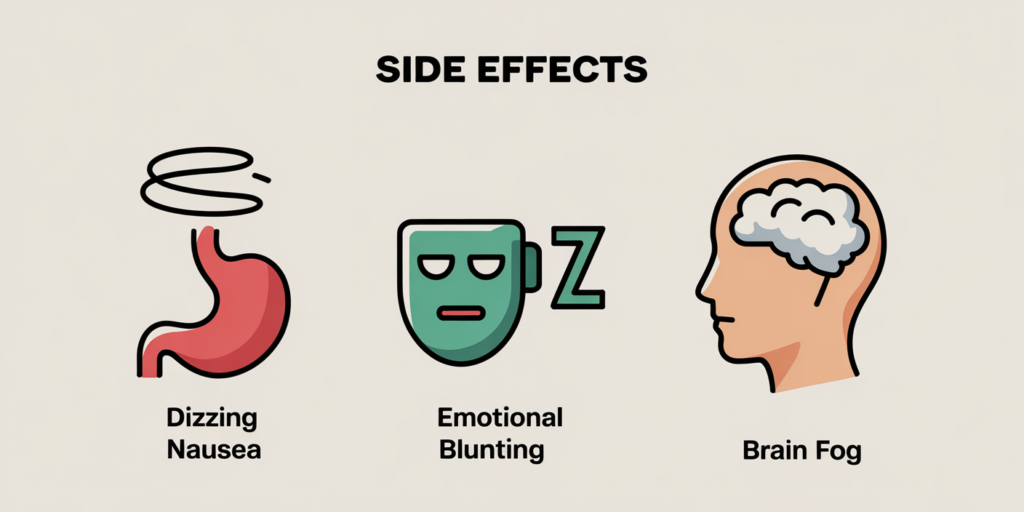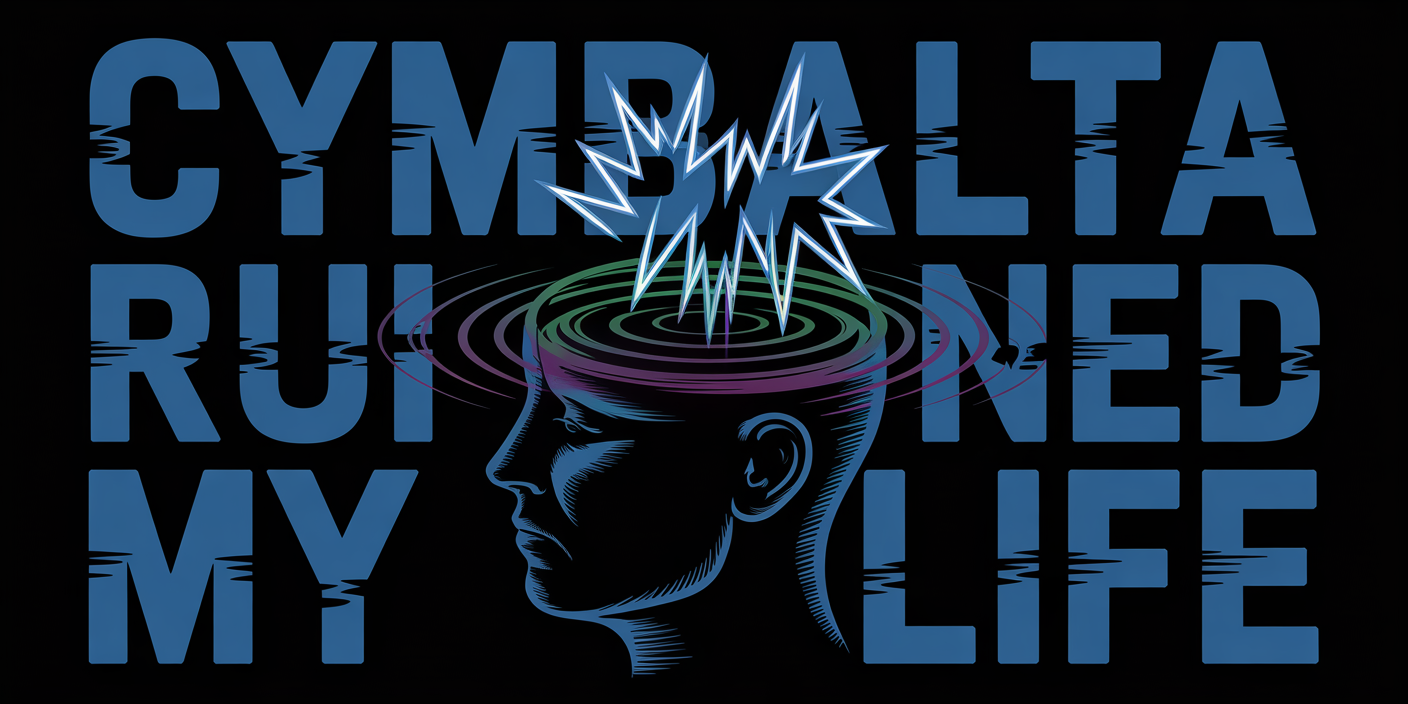Thousands of internet forums, social media groups, and personal blogs all repeat the line “Cymbalta ruined my life“. Those who feel most damaged by their experience with this antidepressant drug, also known by its generic name, duloxetine, are screaming desperately. Although Cymbalta is recommended to assist treat diseases like fibromyalgia, neuropathic pain, generalised anxiety disorder, and major depressive illness, for a considerable proportion of users the road veers unexpectedly and tragically.
This paper explores the typical causes of this strong feeling as well as the significant side effects and crippling withdrawal symptoms that cause some to believe Cymbalta destroyed their lives. We want to provide context and information while honouring these lived experiences and stressing the need of seeing medical experts for recommendations. Have you ever considered what motivates someone to say such a harsh comment against a prescribed medicine?
Cymbalta (Duloxetine): A Brief Overview
Knowing what Cymbalta is and how it’s meant to operate helps one better appreciate the bad experiences.
What is Cymbalta Prescribed For?
Cymbalta (duloxetine) is a member of the Serotonin-Norepinephrine Reuptake Inhibitors (SNRIs) class of medications. Doctors write prescriptions for it mostly for:
- Major Depressive Disorder (MDD)
- Generalized Anxiety Disorder (GAD)
- Diabetic Peripheral Neuropathic Pain
- Fibromyalgia
- Chronic Musculoskeletal Pain
Its dual-action mechanism seeks to raise serotonin and norepinephrine levels in the brain believed to be involved in pain perception and mood control. Many find it to be a useful treatment. But the main emphasis of this paper is on individuals whose results were sadly different.
How Does Cymbalta Work?
Cymbalta and other SNRIs impede the reabsorption (reuptake) of serotonin and norepinephrine into neurones. This increases neurotransmission by presumably leaving more of these molecules accessible in the synaptic cleft—the gap between neurones. This is the desired treatment route even if the precise processes connecting this action to symptom relief are complicated and not entirely known.
The Dark Side: Reasons Behind “Cymbalta Ruined My Life” Claims

Two main factors contribute to the great negativity surrounding Cymbalta: serious side effects from the medication and a somewhat challenging withdrawal process upon termination. The sensation of “Cymbalta ruined my life” finds roots in these battles.
Severe and Persistent Side Effects
Although side effects of all drugs are possible, some documented with Cymbalta can be more severe and constant, greatly affecting quality of life. For some people, these transcend simple, fleeting discomfort. Typical claimed problems include:
- Intense Nausea and Digestive Issues: Persistent vomiting, diarrhea, or constipation.
- Severe Dizziness and Fatigue: Making daily tasks feel overwhelming.
- Emotional Blunting or “Zombie-like” State: Feeling emotionally numb, unable to experience joy or sadness appropriately.
- Cognitive Difficulties: Brain fog, memory problems, difficulty concentrating.
- Significant Weight Gain or Loss: Drastic changes impacting body image and health.
- Sexual Dysfunction: Decreased libido, inability to achieve orgasm, erectile dysfunction.
- Increased Anxiety or Agitation: Paradoxically worsening the conditions it’s meant to treat for some.
- Liver Problems: Though less common, potentially serious liver damage is a known risk.
- Suicidal Thoughts: Particularly in younger adults (a black box warning exists for antidepressants regarding this risk).
Those who experience significant side effects or non-resolving symptoms may feel caught, unable to go about their daily business, which causes them to think Cymbalta ruined my life.
The Nightmare of Cymbalta Withdrawal Syndrome
Usually referred to as Cymbalta Discontinuation experience, the notoriously difficult and often protracted withdrawal experience is perhaps the most widely mentioned cause for the “Cymbalta ruined my life” attitude. Many users, even under physician care with slow tapering, report suffering incapacitating effects while trying to stop the medicine. Among these symptoms might be:
- “Brain Zaps”: Electrical shock-like sensations in the head.
- Severe Dizziness and Vertigo: Feeling unsteady or like the room is spinning.
- Intense Nausea and Vomiting: Making it hard to function or keep food down.
- Flu-like Symptoms: Body aches, chills, fatigue.
- Sensory Disturbances: Heightened sensitivity to light or sound.
- Insomnia and Vivid Dreams/Nightmares: Disrupting sleep patterns significantly.
- Extreme Mood Swings: Irritability, crying spells, anxiety, panic attacks, rage.
- Paresthesia: Tingling or numbness, often in the extremities.
For others, the degree and length of these withdrawal symptoms can be frightening and incapacitating; they may last weeks, months, or even years. Many say Cymbalta ruined my life because of this protracted suffering that affects employment, relationships, and fundamental everyday functioning. Has someone you know or yourself gone through challenging antidepressant withdrawal?
Dealing with strong side effects or Cymbalta withdrawal can be solitary and taxing. Although competent medical advice cannot be replaced by this page, knowledge of the difficulties and accessible help is quite important.
The Critical Importance of Slow Tapering (Under Medical Guidance)
Stopping Cymbalta suddenly (“cold turkey”) is highly discouraged given the possibility for severe withdrawal. Developed with a doctor, a very slow, progressive tapering strategy is absolutely vital. Usually, this entails lowering the dosage over an extended time by somewhat tiny increments. Still, many people suffer from notable withdrawal symptoms even with careful tapering, which emphasizes how strongly the drug affects the neural system. Some patients even go to opening capsules to count beads for micro-tapering (always first discuss this with your doctor!). The challenge even with careful tapering emphasizes why some believe Cymbalta ruined my life.
Finding Support and Validating Experiences
Speaking with people who have gone through same circumstances can be quite validating. Like Surviving Antidepressants or several Facebook groups, online support groups and forums devoted to Cymbalta side effects and withdrawal offer:
Shared experiences and coping strategies. Emotional support and understanding. Information on tapering methods (use discernment and always cross-reference with medical advice).
- Shared experiences and coping strategies.
- Emotional support and understanding.
- Information on tapering methods (use discernment and always cross-reference with medical advice).
Speaking with those who know the particular difficulties—like the infamous “brain zaps”—can help to lessen loneliness. Though the community element can be quite important, remember to approach anecdotal material carefully.
Communicating Effectively with Your Doctor
You absolutely must be open and honest with your doctor. Describe your symptoms precisely, tenaciously.
- Keep a symptom journal, noting severity and timing.
- Clearly state how side effects or withdrawal are impacting your daily life.
- Don’t be afraid to advocate for a slower taper if needed.
- If you feel dismissed, consider seeking a second opinion.
Accurate information is what your doctor needs to help you safely control side effects or negotiate the discontinuation process. Your health, therefore knowing the possible challenges is part of informed consent – a step some feel lacking before they started the medicine, which helps to explain the “Cymbalta ruined my life” story.
In Summary ;
The claim “Cymbalta ruined my life” is a strong evidence of the extreme negative consequences and terrible withdrawal symptoms some people have from this drug. Although Cymbalta offers comfort for many, severe dizziness, mood changes, and especially the often-brutal discontinuation syndrome featuring “brain zaps,” can seriously interfere with life. Patients as well as prescribers depend on an awareness of these possible drawbacks, the need of medically supervised cautious tapering, and the need of support communities.
This page aims to clarify these claimed experiences rather than offer medical advice. Regarding any questions concerning your medication, always speak with a licenced healthcare practitioner.
Please kindly share your experiences in the comments below. Has Cymbalta or its removal presented difficulties? Which support systems or coping mechanisms have proved useful? Your narrative could make others less isolated.

